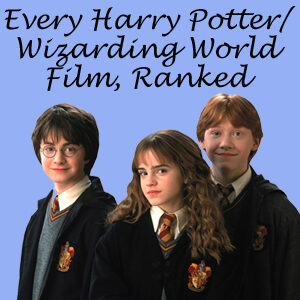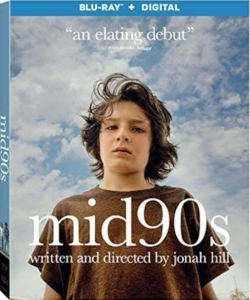The brilliance of “mid90s” (2018), now available on Amazon Prime, is in the details. Writer-director Jonah Hill, known for his comedic acting roles, grew up in this time, and he has a great ear for the way teenagers talked – and the way coolness was the only currency that mattered. Watched from the perspective of 2019, the film makes us think about how the maturation of teen culture has benefited the most vulnerable kids, but also how mid-’90s teens were toughened up by the casual meanness around them.
Narratively, “mid90s” is the story of Stevie (Sunny Suljic) making friends and entering skateboarding culture on the cusp of his teen years. He hangs out on the periphery of the group until he is gradually invited to do things, the first of which is to fetch a jug of water, which he does with great enthusiasm. (Stevie often looks so happy about little things that we can’t help but love him.)
The group includes supremely talented Ray (Na-kel Smith), who eyes a pro skating career; party-obsessed Fuckshit (Olan Prenatt); quiet Fourth Grade (Ryder McLaughlin), who often has his camcorder rolling; and Ruben (Gio Galicia), who projects a gangster air and worries Stevie will supplant his slot as the young member of the group.
Stevie’s fatherless home life is harrowing. “mid90s’ ” first shot finds Stevie’s terrifying older brother, Ian (Lucas Hedges), slamming him against a wall, and not in an innocent roughhousing way. And even the skaters seem scary through the eyes of Stevie. Similar to “Eighth Grade” – last year’s other coming-of-age masterpiece – a viewer is transported back to this age, and the associated fears. The skaters’ hangout is a circle of couches and chairs at the back of the skateboard store where Ray works, and Stevie gradually inches closer to the group day by day, listening in.
The group plays disturbingly gross rounds of “Would you rather?” and tiptoes into cultural issues, like when the white Fourth Grade asks the black Ray if black people use sunblock. Stevie, who gets nicknamed “Sunburn,” has a pre-Wikipedia innocence wherein he doesn’t know what a “black person” is; he’s simultaneously low in cultural intelligence and high in enlightenment. Ruben teaches Stevie that if you say “thank you,” people will think you’re gay. When Stevie’s mom (Katherine Waterston) angrily storms into the shop, Ray tries to mollify her with “Ma’am … ma’am …” in the fashion of teens testing out adult-style speaking before they believe in it.
Even though Stevie is bombarded with confusing mixed messages about what’s cool as he compiles his internal rough draft of street knowledge, the biggest takeaway is that in this time before social media, the teens are talking. Their conversation topics are inane, but they are sitting around and speaking words to each other, in person. What a throwback.
Hill shoots “mid90s” in 4:3 ratio, and – while we lose nothing from this since he’s purposely shooting it this way – perhaps we subconsciously feel the “Clerks”-ian low-budget intimacy of the story with those black bars on the sides. That’s appropriate, because it’s the small moments that make this film so good – certainly not the wider story, which concludes in a predictable fashion reminiscent of drunk-driving PSA footage of the era (although even this feels on point).

Put together, the time-capsule moments coalesce into a study of how an obsession with being cool (which is still a thing for teens, although the way coolness is navigated is more subtle now) stunts a person’s growth. Stevie marvels to a girl at a party about how Ray and Fuckshit are really cool, when – at that point in his friendship with them – it’s a purely superficial (and maybe not even genuine) judgment. We’ll eventually learn how one character’s coolness comes from a real place, and another’s from a place that has stunted his perception of what’s important.
For all their rudeness and uncouth behavior, none of the skaters are villains; they always feel like products of the very culture they perpetuate. There’s no sense whatsoever that there’s a way out of this culture – at least until the ubiquity of the internet and the easy acquisition of knowledge arrives, but that seems hopelessly far in the future.
And we see how friendship can still be a real thing even in an environment where everyone is desperately holding on to whatever level of coolness they have scratched and clawed for. Teens were real a**h***s in the mid-’90s, I won’t deny that. But underneath all that BS, they were people too – and indeed the last era of people who could function without an online surrogate personality. For all of “mid90s’ ” ugliness, there’s something pure and beautiful about that.

